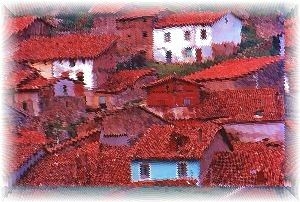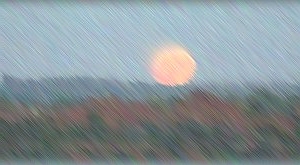Andrés Fisher Haiku
2003-11-12 The translations below provide basic outline & content only.
la primavera
xxx.
Ese individuo
tiene aspecto simiesco:
sapos que croan.
To Javier S. Lorca
That guy over there looks more like an ape, a toad only croaks.
xxxi.
Todas las sobras
son para los pájaros:
no dejan nada.
Leftovers should be left for the birds, they don't leave any.
xxxii.
Una vez mas los
tambores de guerra: la
gata que pare.
Yet again, the drums of war once more: a pregnant cat gives birth.
xxxiii.
Las estrellas se
van borrando en el alba:
cielo naranja.
Night stars are blotted out through the dawn, into an orange sky.
xxxiv.
Llueve en la ciudad:
resplandecen los viejos
techos de teja.
Underneath the city rain, old tile roofs are glistening wet.
xxxv.
Las naranjas de
marzo: en el corazón
de la dulzura.
The oranges of march are discovered in the sweetest heart.
xxxvi.
Ruinas romanas:
dos mil años y aún me
siento en sus gradas.
Roman ruins, two thousand years & yet still I sit in their tiers.
xxxvii.
Praderas verdes:
la última nieve en los
montes de mayo.
By the green meadows, the last snow thaws on the mountains of may.
xxxviii.
Amanece: las
noticias de guerra en la
radio del coche.
The dawn breaks, news of war is imminent, on a car radio.
xxxix.
Morir: solo dos
fechas en paréntesis
bajo un nombre.
To Pepe Olivares
To die, that is, only two dates in brackets under a name.
xl.
Muere Felipe en
una noche de eclipse:
llora la luna.
To Felipe Casa, in memoriam
Felipe died on the night of an eclipse & the moon wept.
© Andrés Fisher 2003
All translations by Robin Ouzman Hislop 2003 & 2004











